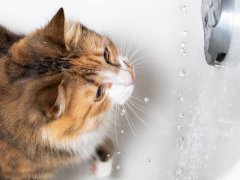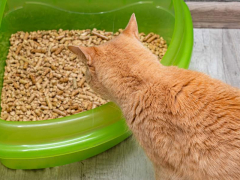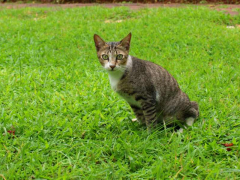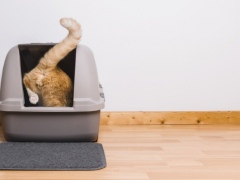
Living with a feline roommate is fantastic fun. After all, you get lots of cuddles, and it’s always playtime. However, there are some downsides to sharing a home with our feline friends. Cats can often develop unwanted and unpleasant behaviors that make sharing your living quarters with them less fun.
One example is if they suddenly start pooping outside their litter box. Pretty grim, isn’t it? So, why might your cat start pooping on the floor? What could it mean? And what can cat owners do about it?
Why Do Cats Poop Outside of the Litter Box?
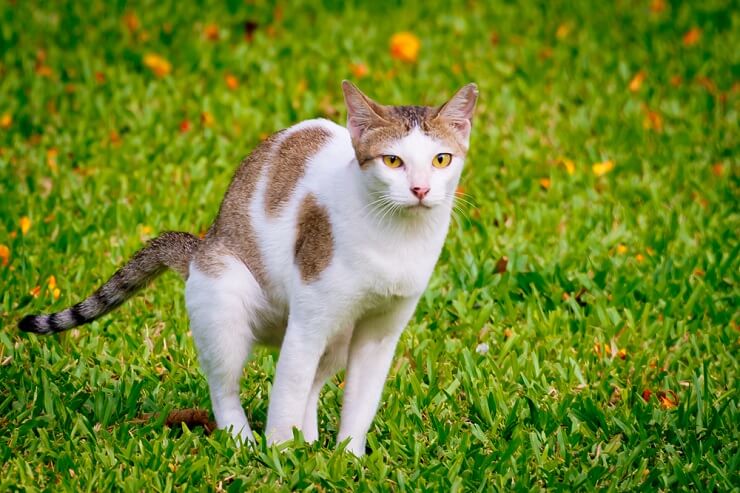
No one wants to share their home with a roommate with bad hygiene, but with cats, it’s not as simple as that. So, what are the reasons why your cat might be pooping on the floor?
Also Read: 6 Common Reasons Why Cats Pee Outside The Litter Box
1. They Have a Health Condition
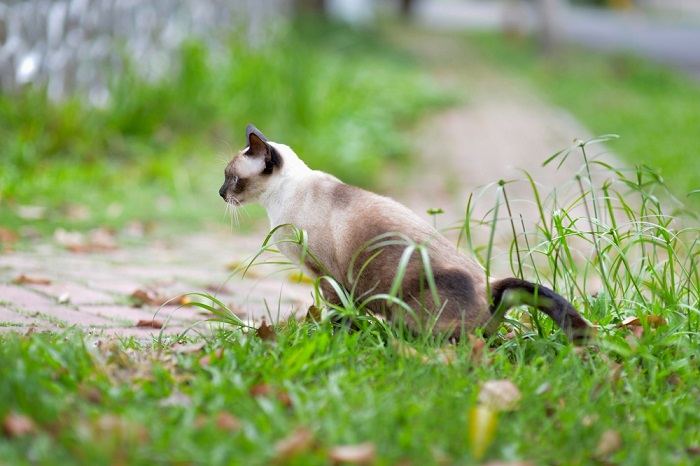
It’s important to remember that any change in your cat’s toileting habits could be a sign of a medical problem. Constipation may mean it takes a lot of effort for them to poop, and diarrhea or looser stools might cause urgency, so they don’t make it to the litter box in time. If in doubt about whether your cat’s pooping issue is medical or behavioral, speak to your veterinarian and get your kitty checked over as a first step.
This is especially important if you notice other symptoms, like weight loss, changes in thirst, or a reduction in mobility. Older cats may suffer from painful joints from arthritis or reduced cognitive function, which could be the underlying cause.
2. They’re Stressed
Cats are very sensitive to stress, so any change to their routine, visitors to the house, or loud or disruptive situations could lead to problems. Sadly, feline stress doesn’t just make your cat feel anxious; it can also lead to behavior problems like inappropriate toileting and medical issues like urinary problems and overgrooming.
Also Read: 5 Visual Signs of a Stressed Cat and How to Help
3. They’re Being Bullied
If you’ve got more than one cat, it’s worth considering whether your cat is being bullied. Cat behavior and communication are subtle, so cats often appear to get on well, to the untrained eye, even when they don’t. If you watch them closely, you might notice that one cat is reluctant to walk past the other or that they often have a silent stand-off where they are both sitting watching each other.
Just because there’s no hissing, biting, or claws doesn’t mean there’s not a fight going on under the surface! Suppose another cat in your household is bullying your cat. In that case, they may find it challenging to get to the litter box safely or feel so stressed that they pass feces elsewhere.
4. The Litter Box Isn’t Clean
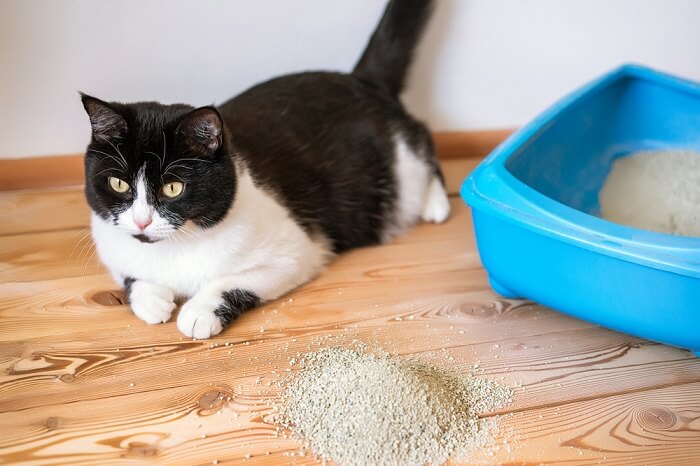
Cats like cleanliness, so they’re often reluctant to use a dirty litter box or one that smells like other cats. This can mean that if the poop isn’t removed and the litter changed regularly, your cat may decide the floor is a nicer place to do their business.
5. The Litter Box Is Too Clean!
This might seem like a joke, but it’s just an example of how fussy felines can be! Cats won’t want to use the litter box if it is contaminated with urine or feces, and they won’t want to use it if their buddy has used it recently. However, clean it with strong-smelling chemicals, and they won’t want to use it either! Cats have a very keen sense of smell and might find the smell of cleaning products overwhelming.
Also Read: How To Clean Your Cat’s Litter Box According to a Cat Behaviorist
6. They Don’t Like the Cat Litter
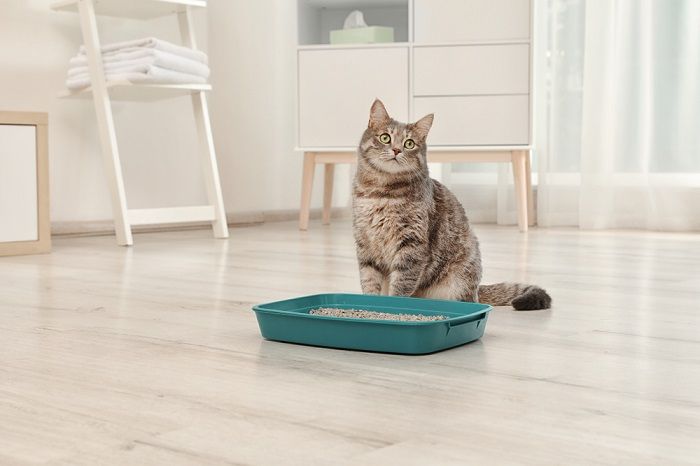
Many cats are very picky about litter and won’t use the box if you fill it with something they don’t like.
Cats aren’t just particular about how clean their litter tray is; they might also have a preference when it comes to cat litter. Some might prefer wood chip type, while others prefer gravel. Some might like clumping, while others prefer non-clumping. It all comes down to personal preference. If your cat isn’t a fan of the cat litter you buy, they might let you know by pooping somewhere else.
8. They Don’t Like the Type of Litter Box
Like cat litter, your cat might prefer a specific style of litter box or tray. For example, some prefer the privacy of a covered tray with a flap door; others find enclosed trays too restrictive. If they’re not keen on the toilet facilities you’ve provided, they might decide to create their own!
Also Read: 5 Best High-Sided Litter Boxes For Messy Cats
9. You Don’t Have Enough Litter Boxes
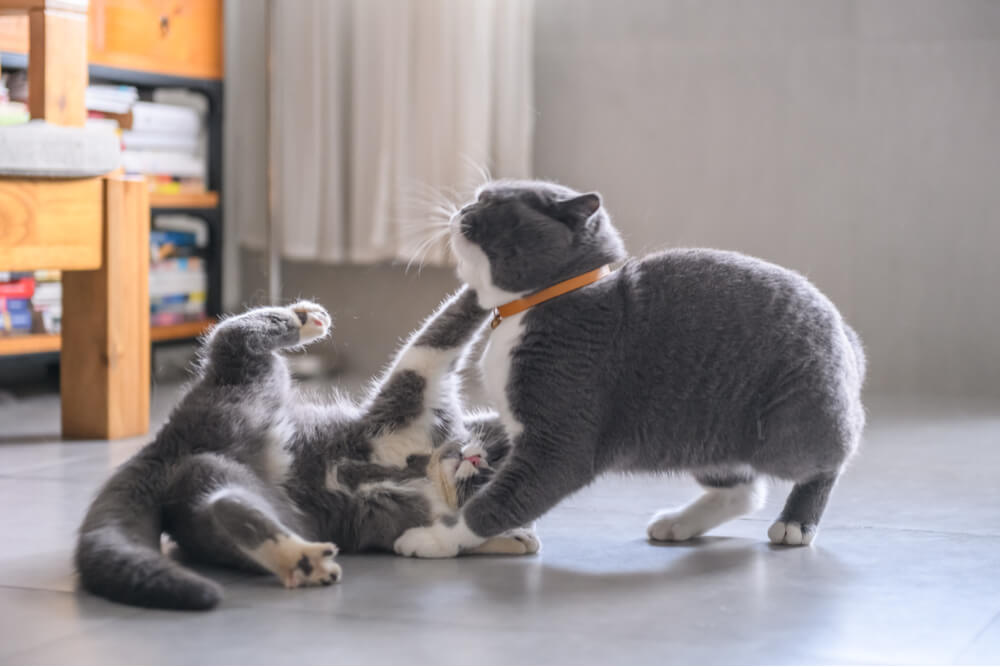
Conflict between cats may increase stress and tension around the litter box, leading to inappropriate urination.
Because they like cleanliness and don’t like to share, cats need more litter boxes than you might think. If you don’t have enough and your cats have to fight over them, you might end up with a feline stress problem and some dirty protests. It’s best to have at least one per cat plus one extra, and it never hurts to use more litter boxes than this.
10. The Location of the Litter Box Is Wrong
Even if you keep your cat’s litter box clean, if it’s in the wrong place they won’t use it. So, if you’ve recently moved your cat’s litter box, or that part of the house is more frequently used now, your cat might not be happy with the lack of privacy.
Also Read: What Is The Best Place To Put A Litter Box?
How Do I Stop a Cat From Pooping Where They Shouldn’t?
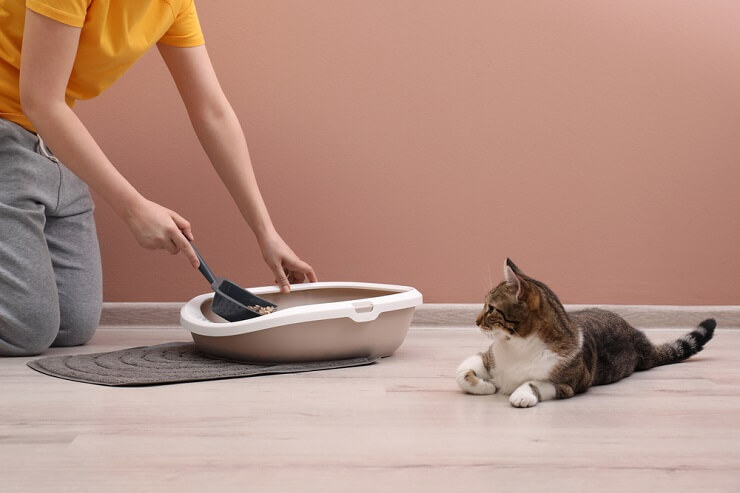
Scoop the litter box at least twice a day to keep it clean and fresh for your cat.
Now you know why cats might poop outside their litter box, you might be able to work out how you can help solve the problem. Here are some ideas:
Remove the Smell
If your cat has pooped on the floor, they may continue to use this area because it smells. Use an enzymatic cleaner to remove the poop smell altogether so that your cat is not attracted to the area.
Check for Stress Causes
If you’ve just brought a new baby home, or your toddler has just got more mobile and is chasing the cat everywhere, it stands to reason that your cat will be stressed. Similarly, if next door is noisily building an extension, you’ve just adopted a new pet, or a man came to install your dishwasher, these are noisy and disruptive and likely stressful for your feline friend.
However, some stress triggers are slightly more subtle, like if other cats are bullying your cat or if you’ve moved the coffee table a few inches to the right! Whatever has changed, it’s worth considering that this could be the reason for their unpleasant behavior and trying to make life more stress-free for them.
Keep the Litter Boxes Clean
Doing regular spot checks to remove soiled litter and doing a complete litter change often should help keep your kitty content. You’ll get to know how often you have to clean your cat’s dirty litter box to keep them pooping in it.
Avoid Strong-Smelling Chemicals
Don’t overdo it with cleaning products when you’re cleaning their litter box. Use mild disinfectants with little or no smell so that you don’t overwhelm your cat’s senses.
Get More Litter Boxes
Not only will having more litter boxes mean clean litter boxes are available more often, but it will also stop your cats from competing. A good rule of thumb is to have as many litter boxes as you have cats, plus one extra. So, if you have two cats, you should have three litter boxes.
Experiment With Cat Litter and Litter Boxes
If your fussy feline isn’t using their litter box, try experiments with different litter and other styles of litter trays. That way, you can see if they prefer something else. If you’ve recently changed the cat litter or bought a different type of litter box out of the blue, this could also be the cause of their unhygienic habit.
Change the Location of the Litter Box
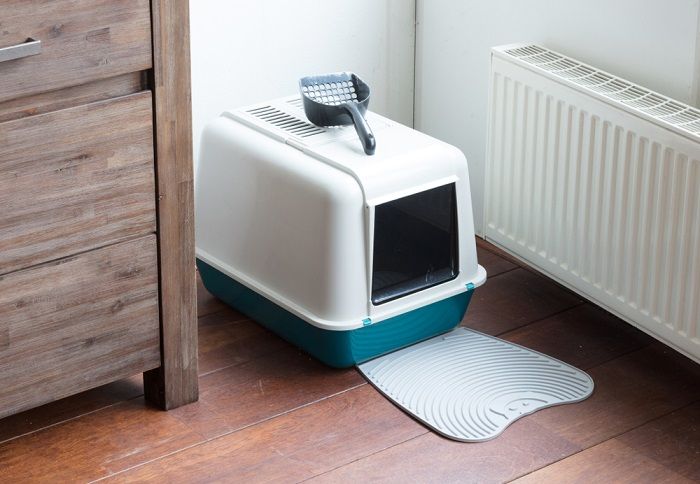
Keep litter boxes away from busy or noisy parts of the house, but don’t put them so far away that your cat feels too lazy to seek them out.
Make sure your cat’s litter boxes are in a quiet, safe, and private spot. If your cat feels insecure or like they’re being watched, they’re unlikely to use it.
Use Calming Products
If you can’t identify the cause of your cat’s pooping on the floor but suspect they’re stressed, you can try using a calming product. These anti-anxiety sprays, capsules, and diffusers can be handy in helping your cat feel less stressed and reducing stress-related behaviors. Products like Feliway and Pet Remedy can be purchased on Amazon or from your veterinarian.
Also Read: The 7 Best Calming Cat Treats
Speak to Your Veterinarian
If nothing is working, you should seek the help of your veterinarian. They will be able to arrange a checkup to look for an underlying health issue and put you in touch with a certified animal behaviorist if needed.
Conclusion
Defecating on the floor isn’t the most endearing of cat behaviors. If your cat starts using your home as a toilet, you might feel at your wit’s end. You might even consider rehoming them. Before you give up, try the above tips and seek the advice of your veterinarian and a veterinary behaviorist. With the proper support, you can live happily with your furry family member again.
